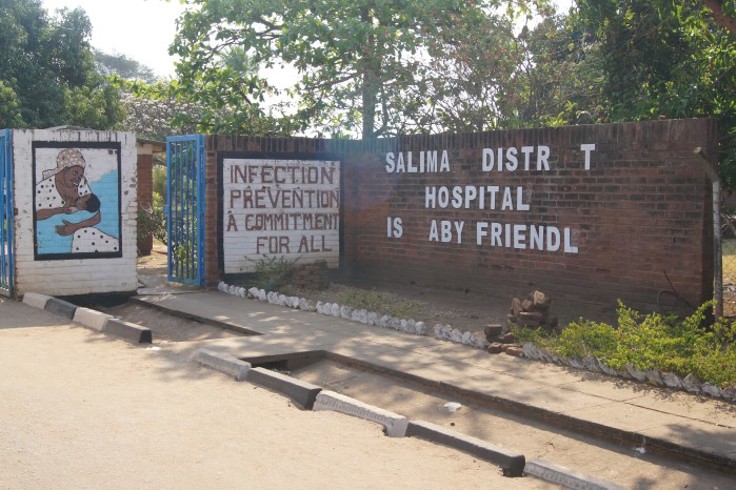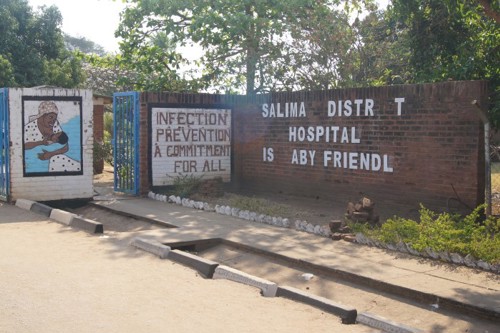Supporting implementation of HTA in low-and middle-income countries
Article
|Updated
The Norwegian Institute of Public Health (NIPH) is partnering with low-and middle-income countries to support local implementation of health technology assessments (HTA).
All countries face difficult choices deciding which new medical technologies, medicines, preventive measures and practices to introduce into the health system. Based within the Division for Health Services of NIPH, our field of expertise is supporting policy makers in low- and middle-income countries to make better informed decisions, realise universal health coverage (UHC), and Sustainable Development Goal 3: Ensure healthy lives and promote well-being for all ages.
With a focus on evidence synthesis and economic evaluations, our team is specialised in providing evidence for decision support, striving to assist the strengthening of evidence-based, sustainable and equitable choices in healthcare. Our team provides support for building models for scientific and technical cooperation on Health Technology Assessment (HTA). HTA is the primary decision support aid NIPH uses as it enables the most systematic, transparent and evidence-based approach towards comparing alternative interventions based up on pre-defined criteria of interest to decision-makers.
Using adaptive methods to support LMICs developing HTAs
As the world is already facing new challenges while continuing to recover from the COVID-19 pandemic, many LMICs are facing shrinking public spending. Priority setting in health is critical to support the reorientation of health policy to efforts aimed at ensuring the efficient and equitable delivery of essential health services to all citizens. Producing new HTAs requires expertise and significant time investments. Depending on the familiarity of the methods and institutionalization of HTA within the setting, using rapid or adaptive HTA methods that transfer existing HTAs may offer opportunities to find and use relevant evidence to inform decisions. A recent scoping review from our team provides an overview of HTA methods, approaches, or tools to transfer HTAs. These could be further applied in settings with limited HTA capacity. For more information, see a recent publication from our team on Considerations for transferability of HTAs.
Our approach
Our efforts are focused on locally identified and driven activities related to HTA processes, the development of relevant tools and products for producing and using HTA.
Steps of the HTA process

We offer support to partner countries across all steps of the HTA process, as illustrated in the figure.
Aspects of implementation in partnerships with low-and middle-income countries (LMIC)
We share our expertise and support LMICs in conducting and adapting HTA to national contexts and establishing local working processes. In addition, we contribute to templates and tools to serve LMIC and global actors.
Our four phases of work include:
- country engagement and skills assessments,
- tailored capacity building, including to develop communities of practice and regional collaborations,
- technical collaborations,
- development and publication of open source tools and resource,
- sustainability, institutionalisation and evaluation
Contact point: Katrine Frønsdal
Partners
Countries
- Ghana - the Ghana Ministry of Health, the Ghana Health Service, Ghana National Health Insurance Agency and the University of Ghana
- Myanmar - the Ministry of Health and Sport, the WHO Myanmar country office, and Thailand's Health Intervention and Technology Assessment Program (HITAP)
- Moldova - the Moldovan National Public Health Agency, and the World Bank
- Palestine - the National Institute of Public Health, World Health Organization country office in the occupied Palestinian territory
Our networks
- World Health Organization (WHO) Headquarters, regional and national offices, including the Decide Health Decision Hub
- European partners, mainly as members of the European network for HTA (EUnetHTA), we collaborate with the leading HTA agencies in Europe to improve HTA, develop the methodology and to share knowledge derived from HTAs
- Core membership of the International Decision Support Initiative (iDSI)
- HTA sister organizations around the world members of the International Network for Agencies for HTA (INAHTA)
- Members of the Health Technology Assessment international (HTAi)
The by-monthly newsletter from HTAi covers our collaboration with Moldova in the 2nd edition (pages 4 and 6, https://htai.org/wp-content/uploads/2020/11/Nov-2020-Newsletter.pdf), and our collaboration with Palestine in the 4th edition (pages 2 and 4, https://htai.org/wp-content/uploads/2021/02/January-2021-1.pdf).
Resources
All products that we produce are freely available as global public goods for the pursuit of Universal Health Coverage and will be available here when published.
- Technical Guidance (2023) titled Technical guidance for Health Technology Assessment in low-and middle-income countries
- Tool (2021) titled Instrument for the assessment of skills to conduct a Health Technology Assessment Version 1
- PowerPoint slides (2022) titled HTA Adaptation and Evidence Transferability, as part of iDSI/LSTHM workshop on Rapid and Adaptive HTA.
- PowerPoint slides (2022) titled Costing in Economic Evaluation are available on request. Relevant training can also be found online at Immunization Economics Community of Practice. For more information on the related workshop, see the article: Continuing to strengthen capacities for HTA in Ghana ‘post’ COVID
-
PowerPoint slides (2021) titled Introduction to Budget Impact Analysis: Part of HTA on Mammography Screening in West bank. For more information on the related workshop, see the article: Co-production of Budget Impact Analysis by NIPH & PNIPH
- PowerPoint slides (2020) titled Economic evaluation of public health interventions. For more information on the related workshop, see the article: Introduction to Economic Evaluation for Public Health Interventions
Reports and protocols
- Report (2021) on the options for topic identification, selection and prioritisation for health technology assessment (HTA) - A report to support capacity building for HTA in low- and middle-income countries
-
Report (2021) of Published literature on capacity building for skills related to health technology assessment in Ghana
-
Report from WHO Regional Office for Europe workshop 2020 on Current status of health intervention and technology assessment in the Balkan region
-
Project Plan for Health Technology Assessment of Mammography Screening in the West Bank
Our team
Funding
This work is partially financed by the Norwegian Agency for Development Cooperation, grant number QZA-21/0082.

